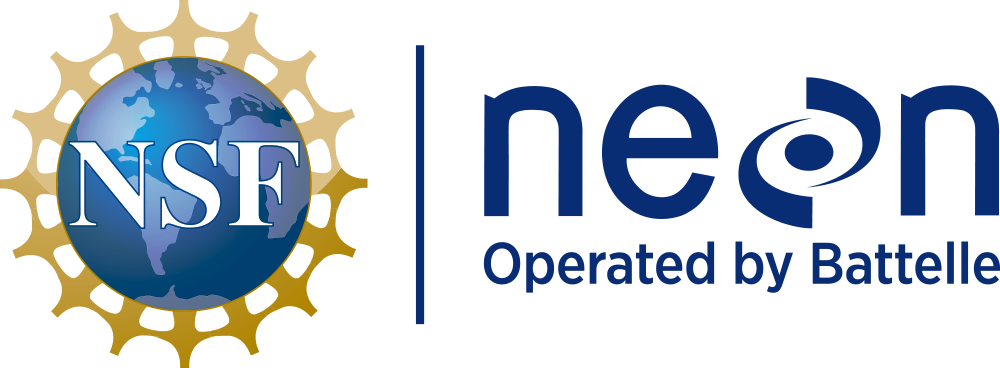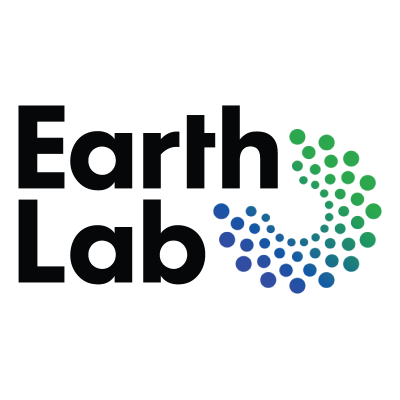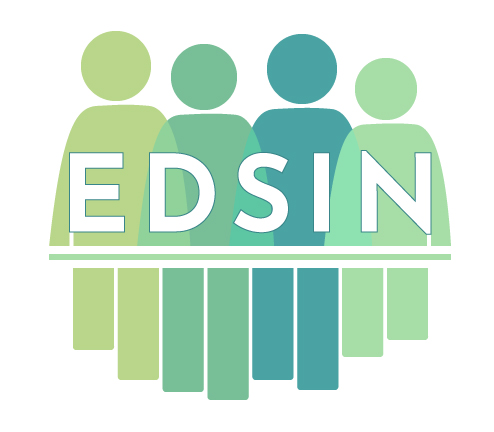Collaborating Organizations
 National Ecological Observatory Network (NEON), Conference Host Organization
National Ecological Observatory Network (NEON), Conference Host Organization
NEON, funded by the National Science Foundation and operated by Battelle, has hundreds of people supporting data science initiatives, including data collection, data processing, data management, software development, data visualization, and data analytics. In addition, NEON has an interest in hiring and retaining a diverse data science workforce and experience mentoring interns and early career professionals in research and technical positions. NEON also has a robust education program that provides online and in-person training and internships to support students and early career scientists interested in data science. NEON will serve as the leader for this initiative in an effort to bring members of the data science community together to create a network that can support recruiting, training, and retention of current and future NEON data users. And, in turn, NEON will further support the data science community as a data provider.
 National Center for Atmospheric Research (NCAR), Conference Location Host
National Center for Atmospheric Research (NCAR), Conference Location Host
NCAR is a center of research excellence in Earth system science sponsored by the National Science Foundation.
 Quantitative Undergraduate Biology Education and Synthesis (QUBES)
Quantitative Undergraduate Biology Education and Synthesis (QUBES)
QUBES (Quantitative Undergraduate Biology Education and Synthesis) is an NSF funded virtual center designed to accelerate systemic change by providing support and resources to instructors teaching quantitative skills to life science students. The QUBES team has built a Consortium of over 80 institutions, NSF projects (including INCLUDES projects), and professional societies which are leveraged to connect initiatives across disciplines and subdisciplines. The team engages in synthesizing best practices for teaching quantitative biology and identify spaces of urgent research or action need.
Lastly, QUBES includes an online virtual infrastructure to support inclusive collaboration, qubeshub.org. QUBESHub is a scientific collaboration platform built on the HubZero infrastructure. It has been developed to support QUBES project activities including faculty mentoring networks, access to educational computing and simulation resources, and the development of robust user communities around quantitative biology partner projects. The Hub environment provides a suite of tools for managing membership, content, and communications while integrating partner projects into the broader QUBES community and thus promoting discoverability, annotation, and sharing of resources.
 Ecological Society of America
Ecological Society of America
The Ecological Society of America (ESA) is the world’s largest largest organization of ecological scientists and professionals. ESA’s 8,000 members work in academia, government, nonprofit and private sectors to improve society’s understanding and stewardship of life on Earth. The Society works to broadly share ecological information through policy and media outreach, education and diversity initiatives and projects that link the ecological research and management communities to integrate ecological science into decision-making. ESA works in partnership with others to offer professional development opportunities for faculty and resources and for teaching and learning including the LifeDiscoveryEd Digital Library and the Life Discovery – Doing Science Education conference.
 The Carpentries
The Carpentries
Data Carpentry and Software Carpentry develop and teach workshops on the fundamental data and computational skills needed to conduct research. The Carpentries mission is to provide researchers high-quality training covering the full lifecycle of data-driven research. Software Carpentry teaches best practices in software development, while Data Carpentry focuses on the introductory computational skills needed for data management and analysis. The lessons build on the existing knowledge of learners to enable them to quickly apply skills learned to their own research. The Carpentries create a friendly environment for learning to empower researchers and enable data driven discovery.
 National Institute for Mathematical and Biological Synthesis (NIMBioS)
National Institute for Mathematical and Biological Synthesis (NIMBioS)
NIMBioS fosters collaboration across disciplines to solve today's problems and provides a diverse set of educational opportunities to solve tomorrow's problems. Mathematical modeling and analysis in biology provides insight into the complexities arising from the nonlinearity and hierarchical nature of biology, from within the cell to global systems. Many issues of national and international concern related to public health, the environment, ecosystem functioning, and natural resources require new scientific knowledge arising from connections between data and models at multiple scales of biological organization. Founded in 2008 with an award from the National Science Foundation, NIMBioS brings together diverse researchers from around the world to collaborate via small focused working groups, investigative workshops, tutorials and educational activities for students at many levels of experience. An evaluation framework guides these activities and NIMBioS has supported the efforts of over 7000 individuals, which has led to over 900 scientific journal publications and numerous other products.
 National Institute for STEM Evaluation and Research (NISER)
National Institute for STEM Evaluation and Research (NISER)
The National Institute for STEM Evaluation and Research (NISER) provides quality program evaluation services to the Science, Technology, Engineering and Mathematics (STEM) research and education sectors, including academic communities, not-for-profit organizations, and government entities. NISER was founded in 2016 under the leadership of Dr. Pamela Bishop, and is part of the National Institute for Mathematical and Biological Synthesis (NIMBioS), housed at the University of Tennessee, Knoxville. NISER’s staff has experience in systems-level evaluation, a deep understanding of interdisciplinary team science, a professional collaborative approach to program evaluation and research, and the ability to untangle the complexity of large-scale STEM programs. NISER has a particular focus on evaluation of programs aimed at broadening participation in STEM fields.
 Global Sustainability Scholars
Global Sustainability Scholars
The Global Sustainability Scholars (GSS) trains and supports rising young professionals in sustainability and innovation from diverse back grounds, disciplines and worldviews. One of the ways we do this is through paid international research experiences, professional development and international networking opportunities for undergraduates and early career professionals. We are creating a lifelong network of scientists, who represent the diversity of today’s society, in transdisciplinary sustainability science and innovation. We are funded by NSF and housed at the University of Colorado, Boulder.
 National Science Foundation Big Data Innovation Hubs
National Science Foundation Big Data Innovation Hubs
NSF’s Directorate for Computer and Information Science and Engineering established a network of four Big Data Regional Innovation Hubs (Northeast, Midwest, South, West) to catalyze and strengthen multi sector partnerships that apply data science to regional and national challenges. The Hubs also support efforts towards data science diversity, education, and workforce development. The South Hub works to increase diversity in data science in all its activities, and recently co-sponsored a Keeping Data Science Broad: Bridging the Data Divide initiative that sought input from data science programs across the country to determine which efforts should be prioritized to keep the data sciences inclusive.
 Computational and Information Systems Laboratory (CISL)
Computational and Information Systems Laboratory (CISL)
CISL's mission is to support and advance the geosciences with world-class computing, data management and research in mathematics and computational science.
 National Center for Women and Information Technology (NCWIT)
National Center for Women and Information Technology (NCWIT)
NCWIT is a non-profit community that convenes, equips, and unites change leader organizations to increase the meaningful participation of all women — at the intersections of race, ethnicity, class, age, sexual orientation, and disability status — in the influential field of computing, particularly in terms of innovation and development.
 National Center for Ecological Analysis and Synthesis (NCEAS)
National Center for Ecological Analysis and Synthesis (NCEAS)
NCEAS conducts transformational science focused on informing solutions that will allow people and nature to thrive.
They are an independent research affiliate of the University of California, Santa Barbara, with a global network and impact. They work to accelerate scientific discoveries that will enhance understanding of the world and benefit people and nature, as well as to transform the scientific culture to be more open, efficient, and collaborative. They do this by:
- Enabling collaborations between the brightest minds in the environmental sciences
- Conducting breakthrough science that is grounded in big-picture thinking
- Improving analyses through computing innovations that increase the (re)usability of data
- Partnering with agencies and organizations that can help put the science to action
- Training and inspiring generations of scientists to practice synthesis and open science
 Earth Lab, one of the lead initiatives of CU Boulder’s Grand Challenge: Our Space. Our Future., is a synthesis center for data-intensive global change research and education. Our research builds on data opportunities to better understand how our environment is changing, the consequences for society, and potential adaptation strategies. Our collaborative, interdisciplinary science crosses a range of fields, including environmental risks and decision-making; wildfire; forest dynamics; disaster tracking via social media; erosion processes; human health and the environment; settlement patterns; and extreme events. Earth Lab’s Earth Analytics Education program, one of the first of its kind in the nation, blends data skills and Earth system knowledge. Our open learning portal hosts over 250 training modules, reaching over 40,000 unique global users a month. Earth Lab’s Analytics Hub experts develop new statistical, analytical, and visualization approaches that meet the challenges of the Earth data revolution to help researchers and students conduct data- and compute-intensive science.
Earth Lab, one of the lead initiatives of CU Boulder’s Grand Challenge: Our Space. Our Future., is a synthesis center for data-intensive global change research and education. Our research builds on data opportunities to better understand how our environment is changing, the consequences for society, and potential adaptation strategies. Our collaborative, interdisciplinary science crosses a range of fields, including environmental risks and decision-making; wildfire; forest dynamics; disaster tracking via social media; erosion processes; human health and the environment; settlement patterns; and extreme events. Earth Lab’s Earth Analytics Education program, one of the first of its kind in the nation, blends data skills and Earth system knowledge. Our open learning portal hosts over 250 training modules, reaching over 40,000 unique global users a month. Earth Lab’s Analytics Hub experts develop new statistical, analytical, and visualization approaches that meet the challenges of the Earth data revolution to help researchers and students conduct data- and compute-intensive science.
